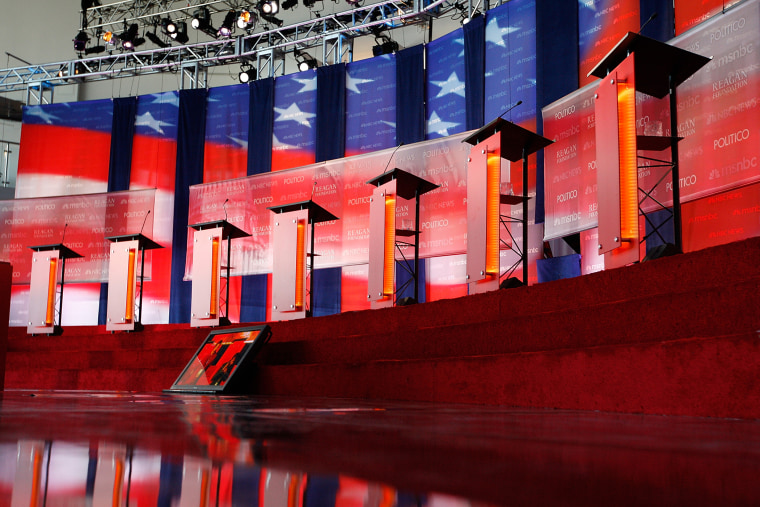Last week, at chairman's Reince Priebus' insistence, the Republican National Committee unveiled a schedule of party-approved debates for the 2016 presidential nominating contest. In all, between August and February, would-be Republican presidents will meet for nine debates, a third of which will be hosted by a Fox network.
With this hurdle cleared, party officials will now have to decide who gets to participate in this limited series of events.
Reince Priebus, Republican National Committee chairman, says that potential presidential contenders will have to poll above certain levels to earn a spot in the GOP debates. In a radio interview on the "Hugh Hewitt Show" Monday, the conservative host asked Priebus how the debates would work if there were 20 candidates vying to be heard.
"You can't do 20 people," Priebus noted, conceding what is plainly true. He added, "You have to have certain thresholds in place, so you have to be at 1 percent of the vote in Iowa, and that threshold can move like a slide rule based on the proximity to the Iowa caucus and New Hampshire primaries, just like it did before."
That's probably a responsible approach, though I think this may be trickier than party officials might like.
It's obviously still early, but at the national level, the number of candidates capable of generating at least 1% support is surprisingly high. In fact, a McClatchy-Marist poll last month found 15 possible Republican presidential candidates -- that's not a typo -- with at least 1% backing.
A few months prior, a Suffolk/USA Today poll found 13 Republicans registering at least 1% in Iowa in advance of its presidential caucuses.
Party officials can raise the minimum threshold to something tougher, maybe 5%, in the hopes of winnowing the field, but that would cause complications of its own. Some candidates who seem as if they could be competitive -- Marco Rubio, Rick Santorum, Rick Perry, John Kasich, and others -- routinely poll below 5%, at least at the national level. Excluding some or all of them would probably not go over well.
Four years ago, there were debates that featured 10 candidates at a time, which led to short answers and very little airtime for some competitors. When this cycle's debate season begins in seven months, the problem is likely to be far worse.
